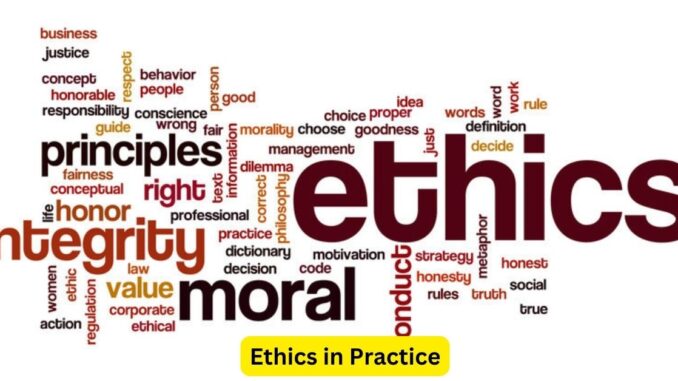
In the legal profession, ethics serve as the cornerstone of justice and fairness. Lawyers are often confronted with challenging decisions that test their moral compass and professional integrity. “The Legal Dilemma: Ethics in Practice” explores the ethical issues lawyers face and the principles that guide their conduct.
The Foundation of Legal Ethics
Legal ethics are grounded in the principles of honesty, integrity, and justice. These principles are enshrined in professional codes of conduct, such as the American Bar Association’s Model Rules of Professional Conduct, which provide a framework for ethical behavior in the legal profession. These rules emphasize the lawyer’s duty to act in the best interests of their clients while maintaining the broader obligations to the court and society.
Confidentiality: Balancing Secrecy and Transparency
Confidentiality is a fundamental ethical obligation in the legal profession. Lawyers must protect their clients’ secrets, fostering trust and encouraging full disclosure. However, this duty can lead to ethical dilemmas, particularly when client information pertains to ongoing or potential harm to others. For instance, attorney Sarah Johnson recalls a case where a client disclosed plans to commit a future crime. Torn between maintaining confidentiality and preventing harm, Sarah navigated the delicate balance by seeking guidance from her bar association and ultimately took steps to avert the potential crime without breaching confidentiality.
Conflict of Interest: Navigating Dual Loyalties
Lawyers must avoid conflicts of interest that could compromise their loyalty to their clients. This ethical principle ensures that lawyers provide unbiased and dedicated representation. However, conflicts can arise in complex scenarios. Michael Lee, a corporate lawyer, faced such a dilemma when his firm represented two companies on opposite sides of a merger. Michael recused himself from one of the cases to uphold ethical standards and avoid any appearance of impropriety. His decision underscores the importance of transparency and self-regulation in maintaining ethical integrity.
Zealous Advocacy: Ethical Boundaries
Zealous advocacy is a core tenet of legal practice, requiring lawyers to vigorously defend their clients’ interests. Yet, this zeal must be tempered by ethical boundaries. Lawyers cannot engage in deceitful or manipulative tactics to win a case. Angela Davis, a seasoned criminal defense attorney, emphasizes that “winning at all costs” is a dangerous mindset. In one notable case, she refused to present false evidence that her client insisted would secure an acquittal. Her commitment to ethical advocacy preserved her integrity and reinforced the legal system’s commitment to truth and justice.
Pro Bono Work: Ethical Responsibility to Society
Ethical practice also involves a commitment to serving the broader community. Pro bono work, or providing free legal services to those unable to afford representation, is a critical aspect of legal ethics. Lisa Nguyen, a family law attorney, regularly takes on pro bono cases, viewing it as her professional duty to give back. Her efforts help ensure that justice is accessible to all, regardless of financial means, and highlight the legal profession’s role in promoting equity and fairness.
Conclusion
“The Legal Dilemma: Ethics in Practice” illuminates the complex and often challenging ethical landscape that lawyers navigate. From maintaining client confidentiality and avoiding conflicts of interest to balancing zealous advocacy with ethical constraints and committing to pro bono work, ethical dilemmas are an inherent part of legal practice. Upholding these ethical principles is essential for preserving the integrity of the legal profession and ensuring justice and fairness in society. Through their commitment to ethical practice, lawyers not only serve their clients but also uphold the rule of law and contribute to the greater good.

Leave a Reply